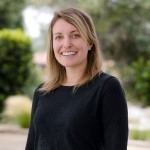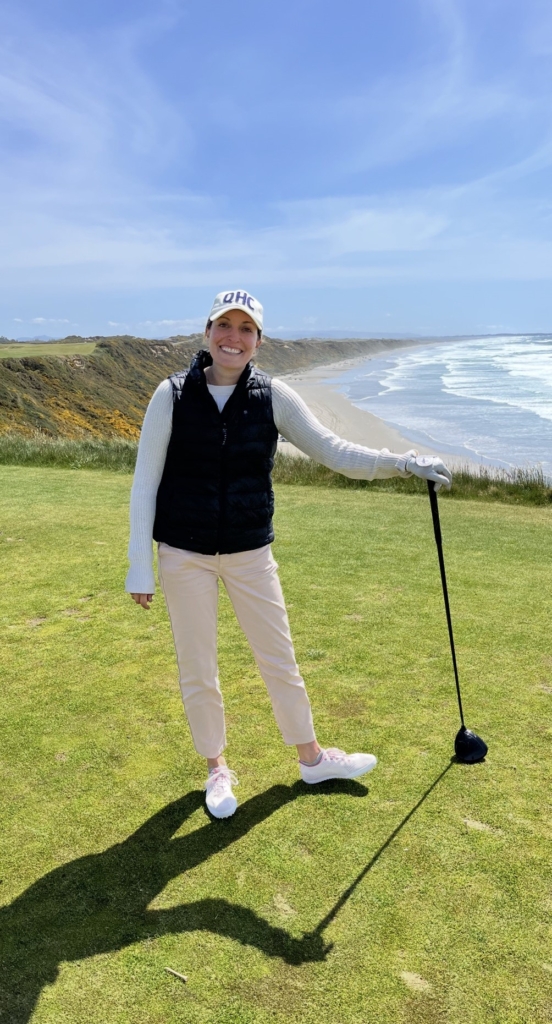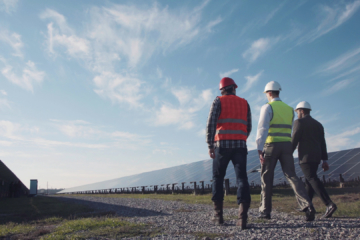- ¿Por qué EDF Power Solutions?
- Sobre nosotrosSobre nosotrosNos comprometemos a proporcionar a las generaciones futuras los medios para alimentar sus vidas de la forma más económica, medioambiental y socialmente responsable posible.
- Qué hacemosQué hacemosSomos un productor independiente de energía y proveedor de servicios líder en el mercado, que ofrece: energía eólica (en tierra y en el mar), energía solar fotovoltaica, almacenamiento y carga de vehículos eléctricos.
- Terratenientes
- Proveedores
- Proyectos
- Carreras
- Noticias
- Contacte con


Staying on Course: Managing Energy Market Risks
Growing up in St. Louis, Missouri, Kristen Hamel started playing golf at age 5. “Our next-door neighbor was a golf pro, and his daughter was the same age as me. He’d pick us up every day after school and drop us off at the range – we were always on the golf course practicing!” she remembers. “I played in junior leagues and got quite serious my freshman year in high school.”
Kristen played across the US and parlayed her success into a golf scholarship at William & Mary, where she distinguished herself by setting the freshman record for a low round (69) and earned a Bachelor of Business Administration, majoring in finance with minors in accounting and economics. “I’ve always been quantitatively inclined and became interested in economics in the context of market activity. I’m fascinated by how markets behave, and the tools you can use to predict and follow trends.”

During her undergraduate degree, Kristen lived in nearby Washington, D.C. for a semester where she completed an internship with the Center for American Progress. “I briefly flirted with the idea of working in the political sphere but decided that wasn’t for me,” she says with a laugh.
After graduating, she returned to D.C. to join Baker Tilly, a management consulting firm. “I enjoyed learning about business strategy and how organizations approach problem solving, but the work was focused on government contracting, and I didn’t find that terribly compelling,” Kristen reflects. “I wanted to be more involved in economics, and that’s what prompted me to pursue a Master of International Affairs at UC San Diego’s School of Global Policy and Strategy.”
At UC San Diego, some of Kristen’s core courses were taught by Professor David Victor who specialized in energy and environmental policy. “These topics hadn’t really been on my radar, but Professor Victor was so engaging that he piqued my interest in his work. I took classes he taught on environmental governance in addition to my concentration in international economics and development.”
As graduation approached, Kristen attended an alumni mixer and met a member of EDF power solutions’ Origination and Power Marketing team. “She needed someone to help with analyzing offtake agreements and offered me an internship. I was tasked with assessing the risk associated with various terms that were being negotiated, and it turned out to be a great crash course in how the energy markets work.”
When the internship ended, that team didn’t have an open position open, but Kristen was hired to join the recently created Market Risk team within the same group. “Around this time, the markets began to change dramatically, and there was a growing need for analysis of the company’s market risk exposure. It was a perfect role for me, my skillsets, and my interests.”
A decade ago, offtake agreements, or power purchase agreements (PPAs), were usually executed with utilities – but around 2018, “a new world order began to emerge as the buying class changed. Commercial and industrial buyers – particularly corporations with clean energy and climate targets – started looking to contract directly with low-carbon power providers,” Kristen explains.
This, in turn, increased risk for project developers. “If a utility is buying the power, the offtake agreement generally requires that the clean energy be delivered to the point of interconnection, with the understanding that the amount delivered will vary because wind and solar are intermittent resources. Since utilities control their transmission networks, have large portfolios, and large customer bases, fluctuations in supply from a renewable resource are something they take in stride.”
“In contrast, non-utility purchasers typically want ‘firm’ delivery of a set amount of power at a precise point on the grid, which may be far from where the project interconnects,” she continues. “For the project owner, this means layering transmission risk on top of production risk. It’s manageable, but we must be strategic and hedge our exposure.”
That’s where the Market Risk team, which Kristen now leads, enters the picture. “We’ve gone from monitoring and forecasting risk to proactively buying market instruments to reduce exposure across our portfolio. In every transaction, we’re seeking to optimize revenue while minimizing financial risk.”
In addition to the influx of non-traditional buyers and growth of renewables, another factor upending energy markets is forecasts of massive load growth due to the demands of AI. “The impacts to the grid over the next five to ten years could be very dramatic,” Kristen says. “Utilities and grid operators are very concerned about this issue. Fortunately, clean energy projects can be built relatively quickly, so they offer one solution to ensuring we have enough electricity.”
“One reason I love my role is that the industry and the market are always changing. We’re on the front lines and must identify and follow trends to help predict what will come next so we can position EDF power solutions for success.”
It’s a dynamic environment, but that suits Kristen just fine. “One reason I love my role is that the industry and the market are always changing. We’re on the front lines and must identify and follow trends to help predict what will come next so we can position EDF power solutions for success.”
These days, Kristen only gets to golf a few times a month, often with colleagues from EDF. “It was the entirety of my life growing up, and I’m happy I’m able to keep it as part of my life now. I started to miss competition, so the past couple of years I’ve played in the San Diego amateur tournament.”
“My job is like a competition…there are measurable scores in terms of revenue and risk. We hold ourselves accountable and have tools that allow us to go back and see if we made the right decisions, just like you would analyze your performance after competing in a sporting event.”
That said, “my job is like a competition,” she reflects. “There are measurable scores in terms of revenue and risk. We hold ourselves accountable and have tools that allow us to go back and see if we made the right decisions, just like you would analyze your performance after competing in a sporting event.”
Looking ahead, Kristen and her team are focused on implementing strategies to further reduce the company’s exposure. “We face new challenges all the time, but finding innovative ways to overcome them is motivating,” she says. “The market isn’t going to become less risky, but we can continue to optimize our approach and find solutions that share the risk between EDF and our customers.”
- 2025 EDF power solutions Norteamérica Norteamérica
- Política de privacidad
- AB 1305 Divulgación
- Informe TCFD
- Soluciones energéticas de EDF


